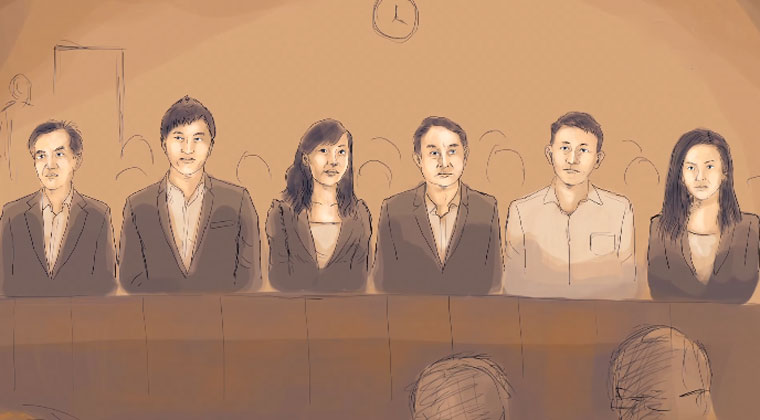The saga involving the leadership of City Harvest Church came to an end with the delivery of the verdict of a rare 5-judge Court of Appeal yesterday (1 February 2018). It is easily the most expensive criminal case in Singapore to-date, and has lasted a total of around 8 years from the time investigations began in 2010.
Many, including the courts and lawmakers, were clearly disappointed with the final outcome of the case.
In the Court of Appeal verdict, the Court began by recognising the inherent tension generated by the case because of an outdated law. On one side of the divide is “the impulse to see crime punished to the full extent of the harm that it causes and in accordance with the perceived culpability of its perpetrators”.
On the other end, is the constitutional imperative that “the court’s power to do justice does not include legislative power”.
In an extensive judgment, the Court comprehensively examined the section under the Penal Code, and concluded that the High Court was correct in its interpretation of the law, despite the unsatisfactory outcome.
It cautioned that “a hard case should not be allowed to make bad law”, and that the Court should not try to fill the gaps in the law because this would essentially usurp the lawmaking role of Parliament.
How should Christians respond to the verdict?
THE ROLE OF SECULAR AUTHORITY
To begin, we must first understand that the Biblical teaching that thrones or powers or rulers or authorities… were created by Christ and for Christ” (Colossians 1:16). All authorities that exist have been established by God, and are sent by God to punish those who do wrong and to commend those who do right (1 Peter 3:14, Romans 13).
Secular authorities are therefore ordained by God to protect public order, health and morality, and to advance the general welfare.
In a case involving serious financial impropriety such as in the City Harvest saga, Christians should not only be deeply concerned about the improper use by the leadership of the church’s Building Fund and General Fund, but also the cover-up and lies told to the congregation. This is a situation which requires both serious church discipline as well as severe action by the State to intervene and punish wrongdoing.
At the same time, the weight of Scripture also shows us that human nature has been corrupted by sin.
From David to Solomon, or Pharaoh to Caesar, all human authority is sinful and has likewise fallen short of the glory of God. The Old and New Testaments repeatedly show how the weakness of human nature and the temptation of power have caused great injustice at the hands of oppressive rulers.
From David to Solomon, or Pharaoh to Caesar, all human authority is sinful and has likewise fallen short of the glory of God.
To curb the human impulse to abuse power, many modern societies emphasise the “rule of law” as opposed to the “rule of men”. No one has supreme authority; instead, we are all governed by the law, including the government.
To avoid concentrating power in any human authority, our supreme law – the Constitution – embodies a system where the roles of making, interpreting and executing the law are separated into the legislative, judicial and executive branches of government. This has been referred to as the “separation of powers”.
Thus, in accordance with their constitutional duty, our courts have recognised the constraints and limits of their power, and exercised restraint by declining to interpret the law in a manner that would fix a gap or “lacuna” in the law.
The Court concluded that “the best course to take is to allow Parliament rather than the courts to intervene”, since they are “ill-suited” and “lack the institutional legitimacy” to undertake such wide-ranging policy review.
Indeed, taking their cue from the Court, it appears that the relevant departments will be conducting such policy review. Shortly after the verdict, the Attorney-General’s Chambers stated that it “will work with the relevant ministries on the appropriate revisions to the Penal Code”.
Law Minister K Shanmugam has also announced that this is a “serious matter” and that he would make a Ministerial Statement in Parliament on the Government’s position.
THE ENDS DO NOT JUSTIFY THE MEANS
Human beings are imperfect, and human laws are also flawed.
But if there is one lesson to be learnt from the City Harvest saga, it is this: The ends do not justify the means.
The mistake of the leaders of City Harvest Church, as observed by the courts, has been the error of assuming that the ends of evangelism through the Crossover project justify the means. In the words of the High Court, the fault of the six individuals lay in “adopting the wrong means”.
Yet, in the same vein, it would be wrong to assume that the courts should therefore exceed the scope of their powers and legitimacy in order to deliver a “just” outcome. To do so would be to commit the very same mistake of using the ends to justify the means.
This entire City Harvest saga has been deeply humbling for everyone.
As Christians, it is never pleasant to see a fellow brother or sister fall into sin or to face the consequences of their sin.
In its concluding remarks, the Court of Appeal pointed out that the 6 individuals “are not getting away unpunished”, but “are facing substantial terms of incarceration”.
As Christians, it is never pleasant to see a fellow brother or sister fall into sin or to face the consequences of their sin.
Indeed, no discipline – including God’s discipline at the hands of His servant, the State – seems pleasant at the time, as it must certainly be for the 6 individuals, the leaders of City Harvest Church, its congregation, as well as the wider body of believers.
Yet, if we are willing to accept God’s loving discipline, the Bible tells us in Hebrews 12:11, we can trust that it will eventually produce in our lives “a harvest of righteousness and peace”.
Darius Lee is currently 29 and a lawyer in private practice. He enjoys reading, writing and a nice cup of cappuccino. He has written about his journey of discipleship in his book, Like a Fire in My Bones: A Journey of Discipleship.









